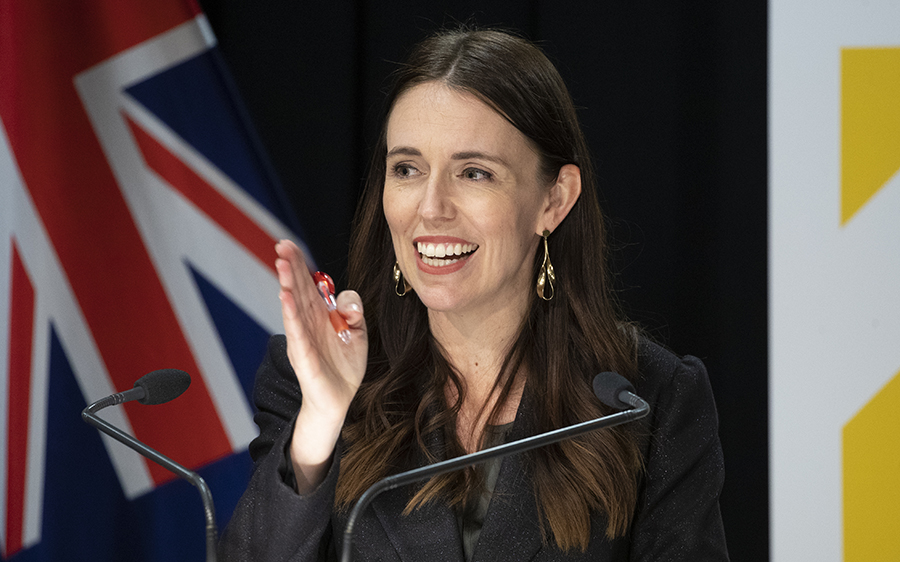With leadership crises all around us today, we need to ask ourselves who we want representing us and decide if we are willing to do the necessary work to get those people in positions of leadership.
Do you want a leader who will agree with everything you say and do, or do you want a leader who will do the most good and with whom you may not always be in lock-step agreement but are willing to accept? We must ask ourselves where America’s Zelensky is: Where are our heroic leaders? We all need to be engaged in society and understand the issues that matter to us. The more engaged people in society, the better the society functions in holding leaders accountable, and the more likely we’ll collectively push hidden heroes from obscurity to greater prominence and impact.
My call to action is this: Spend some time thinking about what you want in a leader and what is most important to you. You may also wish to journal about it, talk to your friends about it, or get clear in your mind about what is essential in a leader. David Gergen’s book, Hearts Touched with Fire: How Great Leaders Are Made, is a good starting point to help you think about what makes a good leader. We can all play a part in how we move forward as a nation, and we all have a responsibility to be informed and fight for what we care about.
The Importance of Moral Leadership
What is moral leadership, and how do we find moral leaders? I agree with David Gergen when he speaks of leadership as a journey that has to start from within. That thought struck a chord with me, and it sheds some light on why leaders behave as they do when they assume leadership roles. The way people lead reflects who they are. They need to understand themselves, control their emotions, and master their inner selves before they can exercise leadership and be of service to others. These elements develop character, help them grow, and develop a sense of purpose. For a leader, knowing their values and having the ability to follow their true north in a complicated world is important. This is essential for developing moral courage and moral leadership. The journey starts within.
When you think of a leader, what or who comes to mind? Some will think of past leaders, and others will think of today’s leaders (many possibly not fitting the bill). If you think of what you would want a leader to be, on the other hand, what comes to mind? Many would say a role model and pillar of the community who dares to act, not in one’s self-interest, but in the interest of the communities they serve. Moral leadership is essential, and it’s about people making choices for the benefit of others while trying to convince others of the merits of different ways of thinking.
A leader who came to power at a relatively young age was the Prime Minister of New Zealand, Jacinda Ardern, sworn into office at age 37. Key issues of concern have been cutting child poverty, homelessness, climate change, and equality. Ardern has forged a different path based on courage, strength, empathy, and compassion, stressing kindness and well-being as a governing virtue. She has sought to lead by example, demonstrated in the aftermath of the horrific attack in Christchurch on March 15, 2019, which took the lives of 50 people while praying in a mosque. She sent a powerful message around the world about New Zealanders’ shared values, that those who seek to divide us will never succeed and that New Zealand will always protect its strength’s diversity and openness.
The next generation is rising. Young people across the United States are becoming energized and inspired. They are demanding more from leaders and those in positions of power and are informed on the issues that will affect them in the coming years. Thrust into the world of activism by the largest school shooting in American history, Parkland school shooting survivor David Hogg has become one of the most compelling voices of his generation on gun violence and control. The co-founder of March for Our Lives, his call to “get over politics and get something done” challenges Americans to stand up, speak out, and work to elect morally just leaders, regardless of party affiliation.
Unfortunately, in today’s world, many leaders are more concerned with their status and solidifying their power base than with morality and doing what is right for the highest good of all people. We need leaders of moral courage, compassion, and character more than ever. The world has no shortage of challenges, and now is the time for strong moral leadership. How do these leaders emerge that we so desperately need? How do we develop leaders who will stand up and be courageous?
There is no simple answer to these questions, but perhaps a clue to the thinking we need is found in Dr. Timothy Shriver’s commencement address to Georgetown University’s College of Arts and Sciences in May: “People think, love your enemies? That’s for saints — not for the hard-edge reality I live in.’ But nothing about loving your enemies says you shouldn’t fight for justice, you shouldn’t fight for equity, and you shouldn’t work for peace. It does say you will not get there with hatred and contempt. You will not win the battles this generation must win for our country with hatred and contempt for your fellow countrymen and women. Love your enemies is no longer the strategy for saints; it is the new requirement for citizenship.”




































